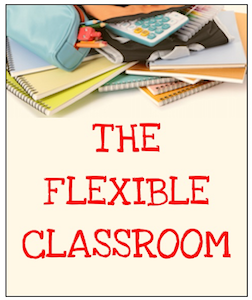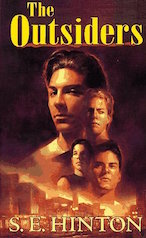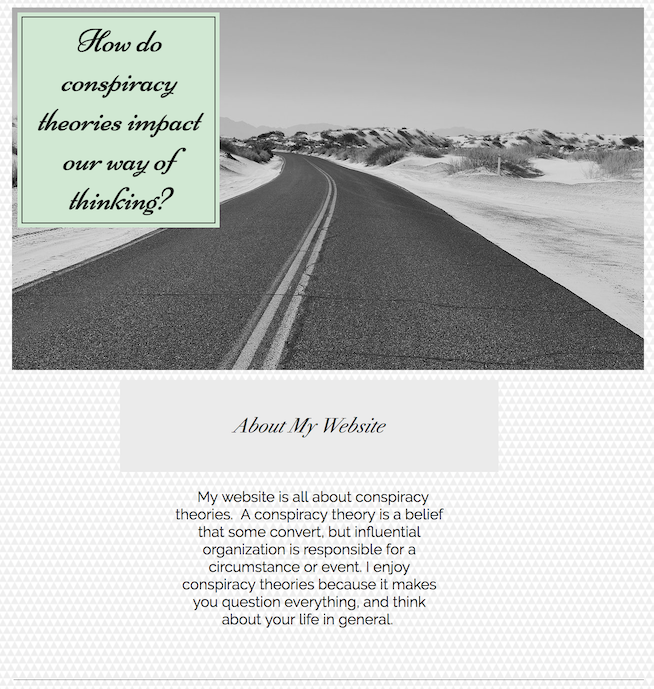Balancing Guided Reading and Authentic Discovery
A MiddleWeb Blog

In early April I wrote an article for the Getting Smart blog about allowing my eighth grade students the opportunity for authentic discovery. In this case – of a coming-of-age novel. I had just taught The Outsiders for the first time, and I hadn’t done any pre-teaching at all.

I was invigorated that my students were experiencing literature in a way that I had so many times. Cold reads, letting the words wash over you, soaking up the nuances of the language and dialogue, tapping into the story as a story, nothing more. No prep. No history lessons.
Fast forward to May
Now, something extraordinary has happened. The year is winding down, and it is time for our Passion Projects. These projects are very individualized and highly independent. Most of my 2017 kiddos, as usual, jumped into the process, eager to explore a topic on their own. (Here are some of last year’s projects.) This is exactly what I was getting at in my Getting Smart article – more “authentic discovery.”

However, there were some students who I had concerns about. The first part of the project is to read 100 pages of non-fiction on their chosen topic, and when I did my initial checkpoint, I knew that I needed to intervene.
About a dozen students were behind enough that I made the decision to create a “guided project” for them. It isn’t a punishment, and the work is still really engaging and interesting, but it is meant to help students manage their time. Guided projects are nothing new for my project based classroom (you can check out the Guided Giver Project here), so there is no stigma attached.
Anyway, I decided to build on the success of the The Outsiders unit and create a webquest exploring some of the 1960s history and culture that formed the book’s backdrop. The “guided” students would still be doing research, and they would also have the all-important final 10-minute culminating presentation.
A few days after both the independent projects and the webquest were in full swing, an odd thing happened. Class by eighth grade class, some students who were doing the Passion Project – which my students always love! – were asking me if they could do the guided webquest about The Outsiders instead.
A flexible classroom dilemma
This left me in a new situation. I’m all about choice, right? However, the purpose of the Passion Project is to push students from the nest of my room, and see them take off on their own. Should I let them abandon independence for the guided experience?
I asked students why they wanted to switch. A few thought the work would be less, which I assured them was not true. In the end, the defectors from the Passion Project fell into two camps: those who felt the need for more guidance than the Passion Project provides, and those who were really, really interested in all things Outsiders.
In both cases, I felt comfortable allowing the switch. I loved that students were self-aware enough to recognize their need for a more structured process. Mostly though, I was intrigued by the students who were so interested in The Outsiders that they wanted to learn more.
Had I missed the boat with my authentic discovery strategy? They had seemed genuinely interested in that approach as well, really basking in the universality of the text, not as a story about the 1960’s.
The best of both worlds
As with most things, there’s likely a middle ground. I asked students about this issue, and without exception they thought that next year I should continue to let students “just read” the book and experience it for themselves. But, they said, when next year’s classes are done with the reading, I should then assign the The Outsiders webquest so they can learn more about the historical context of S.E. Hinton’s YA classic.
I then asked them what my future students should be doing as the culminating project or presentation for The Outsiders unit, and I love what one of the novel’s biggest fans suggested.
He said I should assign chapters from the book to our Resource Groups, and each group would create a presentation on the historical aspects of their assigned chapters. The groups would then present in chapter order, allowing the class to be immersed in both the plot and the historical circumstances. Brilliant!
We can always learn from our students
Teaching anything for the first time is daunting. When you have a project based classroom like I do, units aren’t concrete and orderly, but rather productions that take on a life of their own. During the next week or so, I’m going to map out this new plan so that my students can have the best of both worlds next year – the joy of discovery and the deeper historical context that clearly so many of my students found interesting.
I’m more than a little excited by this intriguing turn of events. Learning from my students, and watching them advocate for what they want to learn is certainly an exciting way to end a school year!






























